The Prodigal Son
Let's read the three parables in Luke 15, including the story of Prodigal Son, and then ask some questions.
This text is taken from the English Standard Version of the Bible.
Jesus tells parables
Now the tax collectors and sinners were all drawing near to hear him. 2 And the Pharisees and the scribes grumbled, saying, “This man receives sinners and eats with them.”
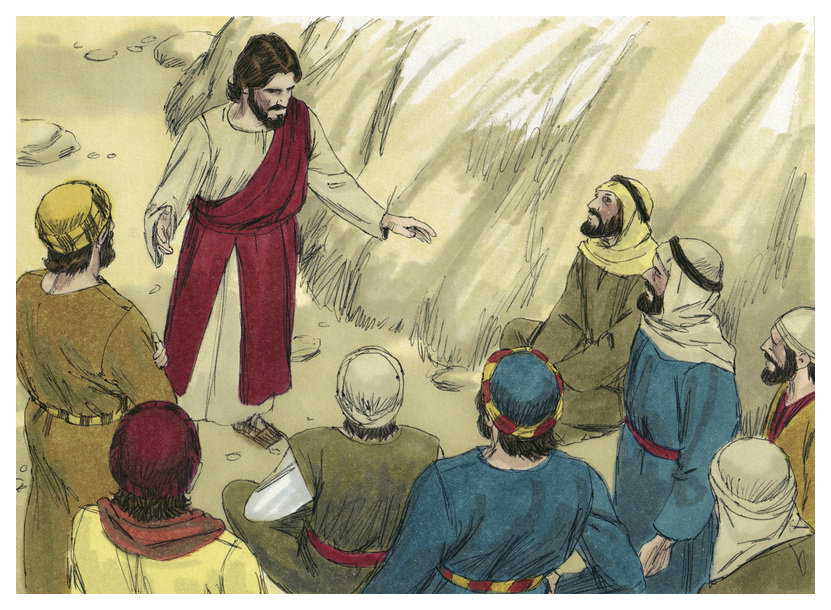
By Distant Shores Media/Sweet Publishing, CC BY-SA 3.0, https://commons.wikimedia.org/w/index.php?curid=18885583
Parable of the Sheep
3 So he told them this parable: 4 “What man of you, having a hundred sheep, if he has lost one of them, does not leave the ninety-nine in the open country, and go after the one that is lost, until he finds it? 5 And when he has found it, he lays it on his shoulders, rejoicing. 6 And when he comes home, he calls together his friends and his neighbors, saying to them, ‘Rejoice with me, for I have found my sheep that was lost.’ 7 Just so, I tell you, there will be more joy in heaven over one sinner who repents than over ninety-nine righteous persons who need no repentance.

Who is Jesus telling this story to? Jesus is criticized for associating with people who are social outcasts and perhaps even untrustworthy. Why would Jesus hang out with them? Is this story explaining that? How do you feel about hanging out with social outcasts?
Let's think about the relationship between shepherds and sheep. What is the shepherd's responsibility to the sheep? How are we like sheep? Who is our shepherd?
Parable of the Coin
8 “Or what woman, having ten silver coins, if she loses one coin, does not light a lamp and sweep the house and seek diligently until she finds it? 9 And when she has found it, she calls together her friends and neighbors, saying, ‘Rejoice with me, for I have found the coin that I had lost.’ 10 Just so, I tell you, there is joy before the angels of God over one sinner who repents.”
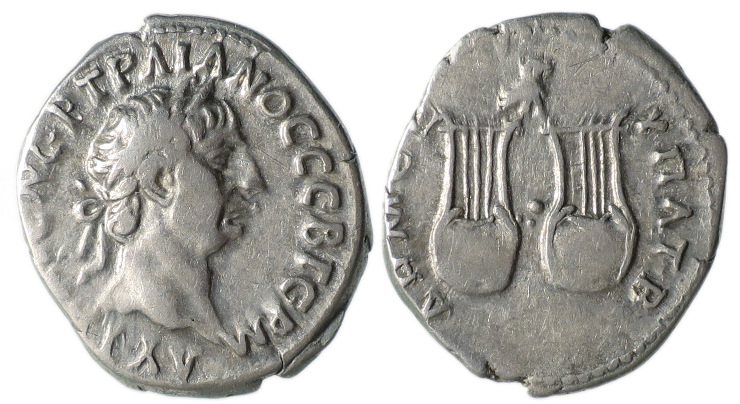
Ancientcointraders, CC BY-SA 4.0 <https://creativecommons.org/licenses/by-sa/4.0>, via Wikimedia Commons
How is this story similar to the sheep story?
Both stories talk about an object of value. In one case, a living sheep, and now, a silver coin. If we're like the lost sheep or lost coin, what is Jesus saying about our value? Are we valuable to God?
Father and Two Sons
11 And he said, “There was a man who had two sons. 12 And the younger of them said to his father, ‘Father, give me the share of property that is coming to me.’ And he divided his property between them.
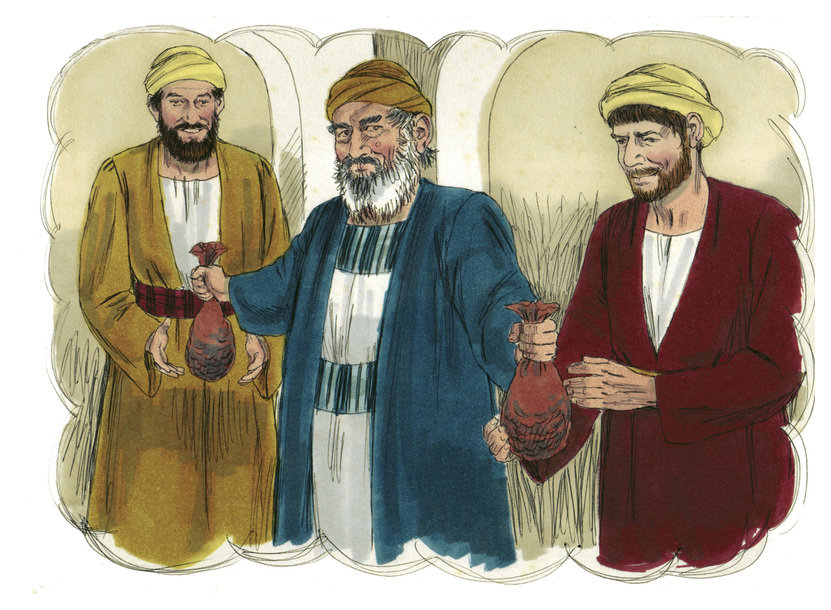
By Distant Shores Media/Sweet Publishing, CC BY-SA 3.0, https://commons.wikimedia.org/w/index.php?curid=18887669
The Younger Son
13 Not many days later, the younger son gathered all he had and took a journey into a far country, and there he squandered his property in reckless living.
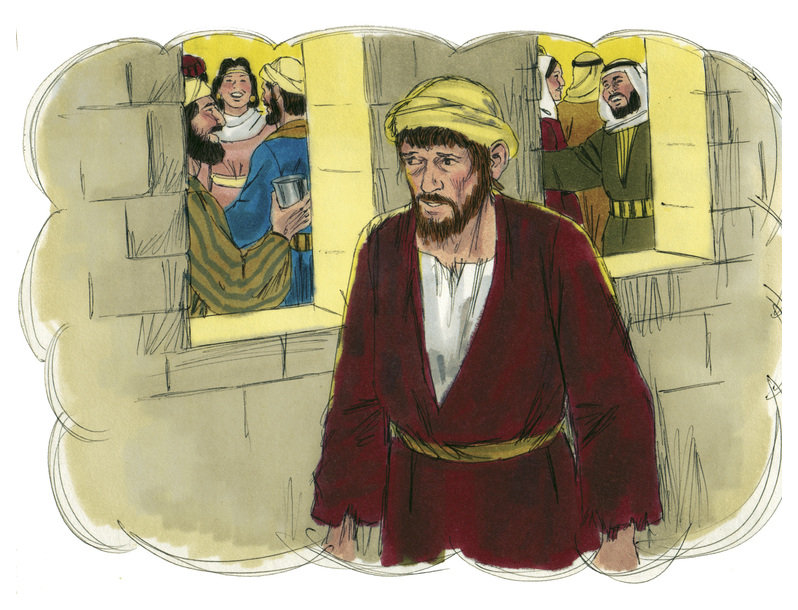
By Distant Shores Media/Sweet Publishing, CC BY-SA 3.0, https://commons.wikimedia.org/w/index.php?curid=18887670
Feeding Pigs
14 And when he had spent everything, a severe famine arose in that country, and he began to be in need. 15 So he went and hired himself out to one of the citizens of that country, who sent him into his fields to feed pigs. 16 And he was longing to be fed with the pods that the pigs ate, and no one gave him anything.
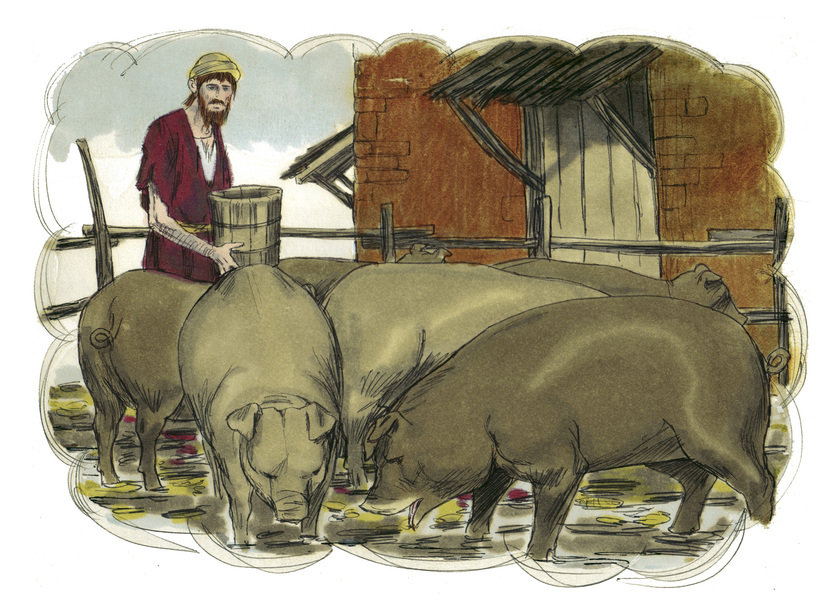
By Distant Shores Media/Sweet Publishing, CC BY-SA 3.0, https://commons.wikimedia.org/w/index.php?curid=18887674
Waking Up
17 “But when he came to himself, he said, ‘How many of my father's hired servants have more than enough bread, but I perish here with hunger! 18 I will arise and go to my father, and I will say to him, “Father, I have sinned against heaven and before you. 19 I am no longer worthy to be called your son. Treat me as one of your hired servants.”’
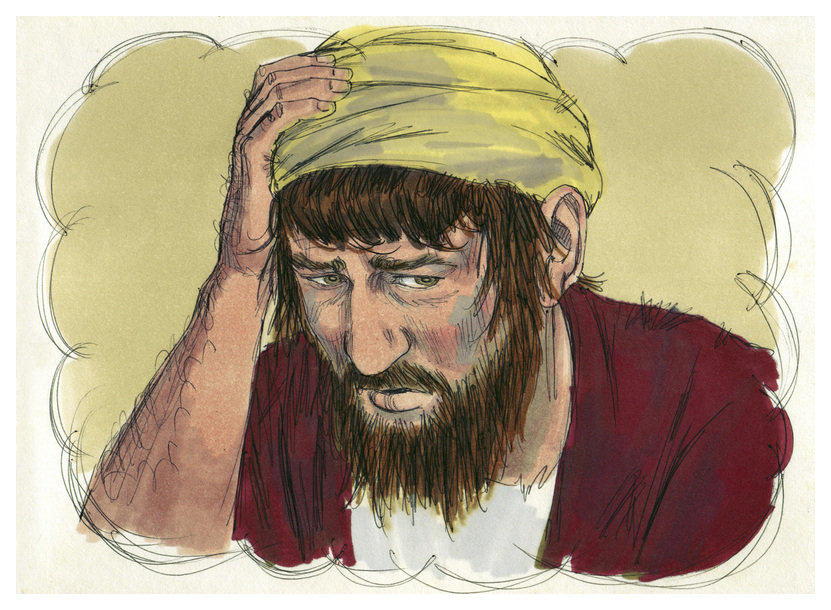
By Distant Shores Media/Sweet Publishing, CC BY-SA 3.0, https://commons.wikimedia.org/w/index.php?curid=18887676
Returning to the Father
20 And he arose and came to his father. But while he was still a long way off, his father saw him and felt compassion, and ran and embraced him and kissed him.
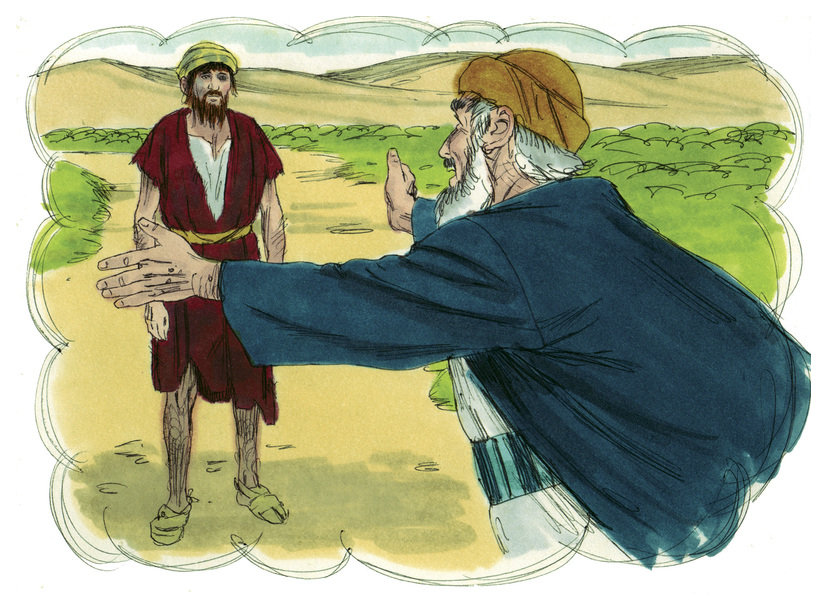
By Distant Shores Media/Sweet Publishing, CC BY-SA 3.0, https://commons.wikimedia.org/w/index.php?curid=18887676
The Son's Guilt
21 And the son said to him, ‘Father, I have sinned against heaven and before you. I am no longer worthy to be called your son.’
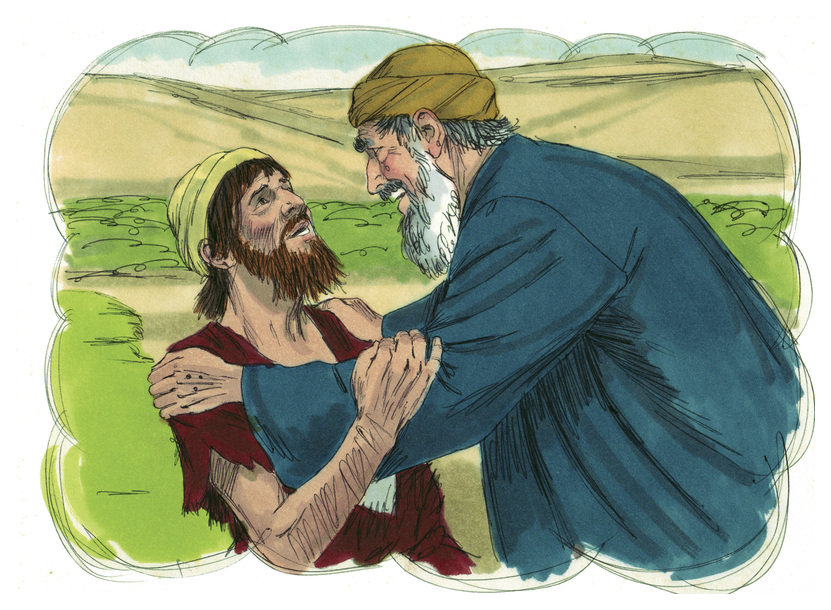
By Distant Shores Media/Sweet Publishing, CC BY-SA 3.0, https://commons.wikimedia.org/w/index.php?curid=18887679
The Father's Welcome
But the father said to his servants, ‘Bring quickly the best robe, and put it on him, and put a ring on his hand, and shoes on his feet. 23 And bring the fattened calf and kill it, and let us eat and celebrate. 24 For this my son was dead, and is alive again; he was lost, and is found.’ And they began to celebrate.
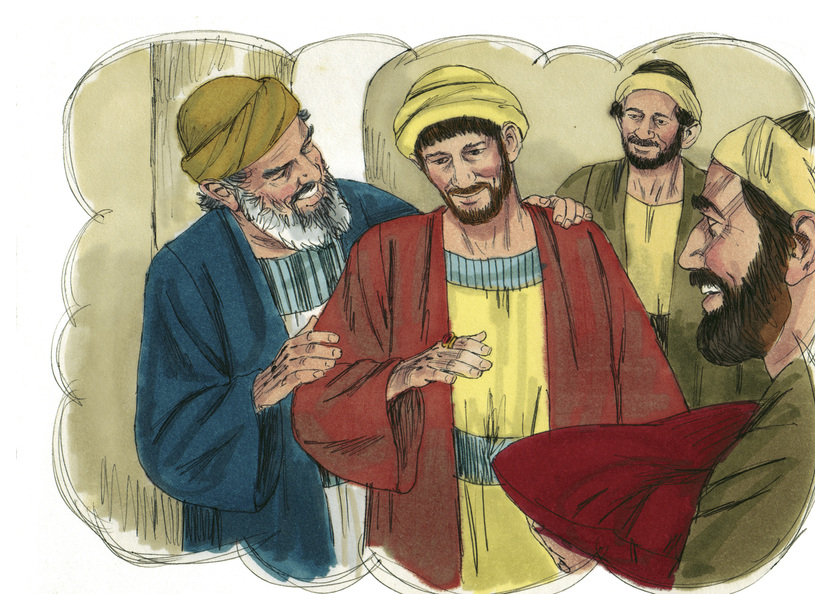
By Distant Shores Media/Sweet Publishing, CC BY-SA 3.0, https://commons.wikimedia.org/w/index.php?curid=18887681
The Older Son
25 “Now his older son was in the field, and as he came and drew near to the house, he heard music and dancing. 26 And he called one of the servants and asked what these things meant. 27 And he said to him, ‘Your brother has come, and your father has killed the fattened calf, because he has received him back safe and sound.’ 28 But he was angry and refused to go in. His father came out and entreated him,
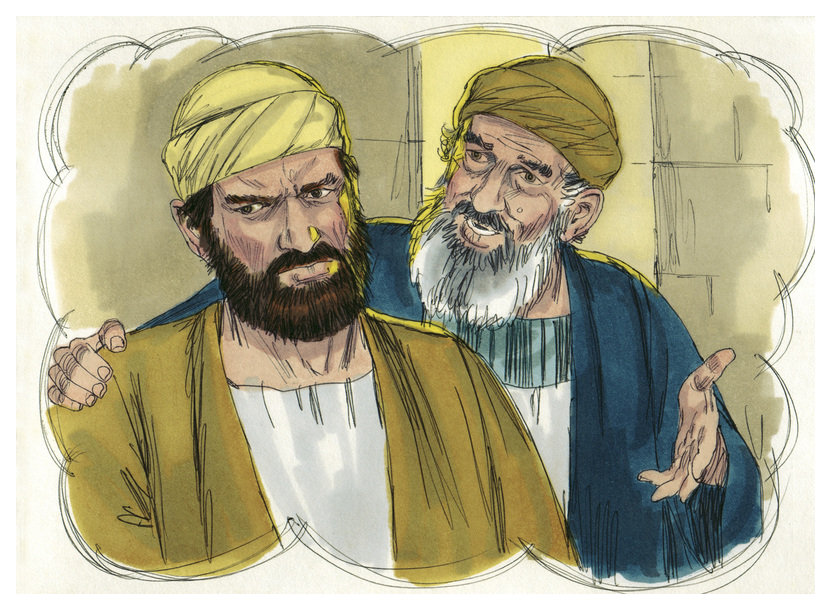
By Distant Shores Media/Sweet Publishing, CC BY-SA 3.0, https://commons.wikimedia.org/w/index.php?curid=18887684
The Son's Anger
29 but he answered his father, ‘Look, these many years I have served you, and I never disobeyed your command, yet you never gave me a young goat, that I might celebrate with my friends. 30 But when this son of yours came, who has devoured your property with prostitutes, you killed the fattened calf for him!’
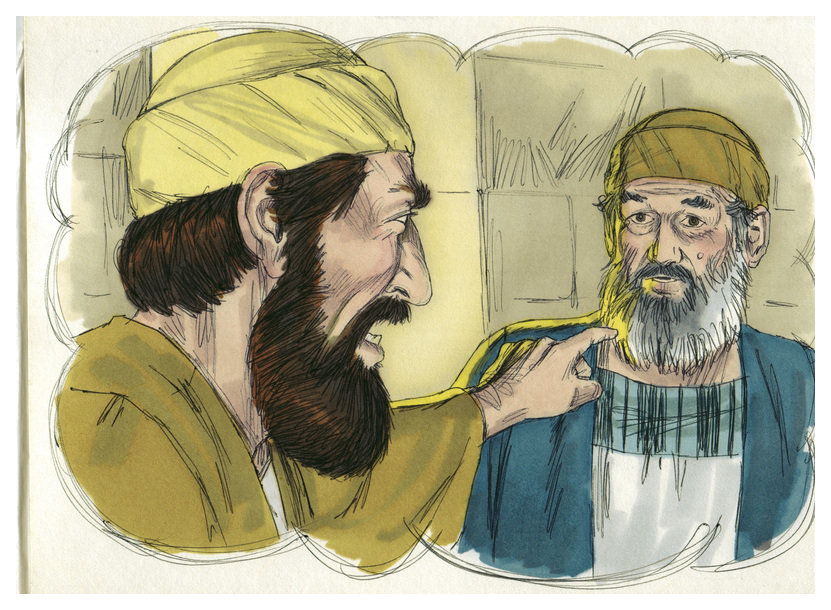
By Distant Shores Media/Sweet Publishing, CC BY-SA 3.0, https://commons.wikimedia.org/w/index.php?curid=18887686
The Father's Comfort
31 And he said to him, ‘Son, you are always with me, and all that is mine is yours. 32 It was fitting to celebrate and be glad, for this your brother was dead, and is alive; he was lost, and is found.’”
“Scripture quotations are from The ESV® Bible (The Holy Bible, English Standard Version®), copyright © 2001 by Crossway, a publishing ministry of Good News Publishers. Used by permission. All rights reserved.”
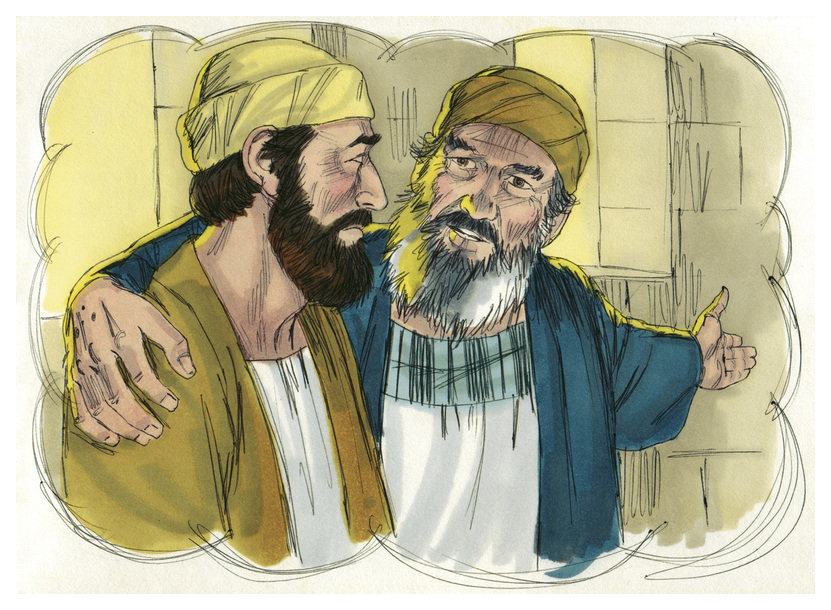
By Distant Shores Media/Sweet Publishing, CC BY-SA 3.0, https://commons.wikimedia.org/w/index.php?curid=18887688
What do you think the father meant when he said his younger son was dead, or as it says in the Greek, a corpse? He was never literally dead. What did he mean by that? What has changed that now makes him alive?
Do you ever feel like everything around you is going wrong? Have you ever needed help and gone to the wrong place to find it? Where should we go to get help when we need it?
Why did the son leave the father in the first place? Is there something in human nature that wants to rebel? How did he waste what the father gave to him? Do we sometimes waste opportunities that are given to us?
When did the son have a change of heart? Why? Would he have had a change of heart without finding himself in such a bad situation? Is it harder to change when we think we're happy?
What good qualities does the father express? If we think about the father in the story being God, then what must God be like?
Was the older son justified in his anger? Why does he describe his relationship with the Father as slavery? What does this tell us about the older son's character?
Remember that these stories are being told to the religious leaders who were critical of Jesus helping sinners and tax collectors. Do you think the religious leaders are like the older son? Do you think the people Jesus is helping are like the younger son? What is the main point of all these stories Jesus tells?